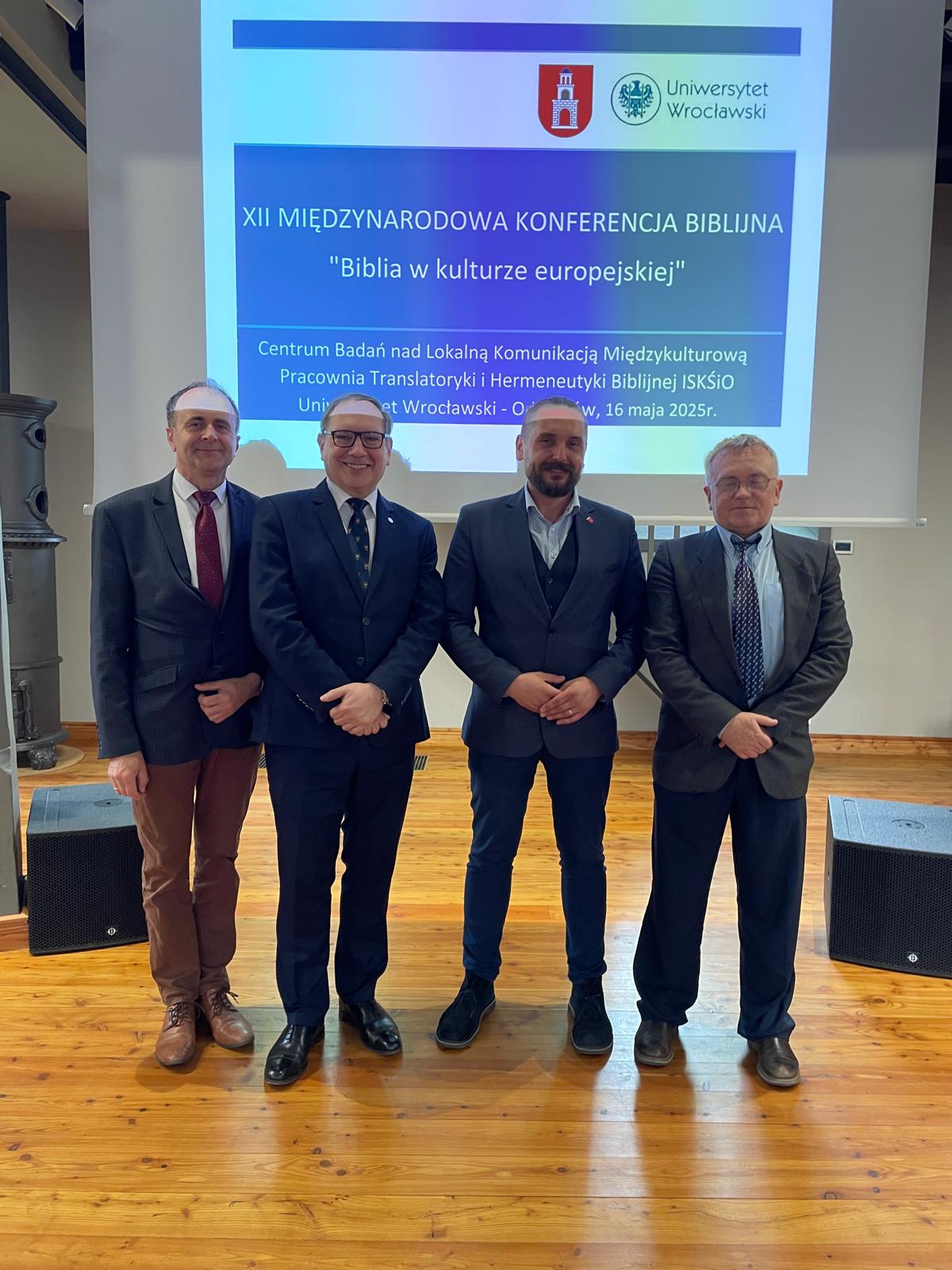
UWr 12th International Bible Conference in southern Greater Poland
From 15 to 16 May 2025, the International Bible Conference, ‘Biblia w kulturze europejskiej’ took place. The inauguration of the conference was held in Forum Synagoga in Ostrów Wielkopolski, where the Research Centre for the History and Culture of the Jews of Southern Greater Poland of the University of Wrocław is located.
An influence the Bible exercises on the European culture is invaluable. It embraces a wide range of disciplines: from art, through literature, to philosophy and law. Biblical texts constitute a foundation for a European cultural identity development, inspiring such artists as Michelangelo and Rembrandt, writers of Dante’s ilk, Milton and Shakespeare, but also philosophers and religious reformers, such as Martin Luther. Biblical language and imagery permeated European languages, creating idioms, metaphors, and rhetoric. Moreover, the Bible has had a crucial impact on ethical and legal systems, shaping social norms and values.
During the periodic International Bible Conference, organised by the Centre for Biblical Translation and Hermeneutics in the University of Wrocław, researchers of various fields of study analyse the abovementioned aspects in detail. During this year’s Conference, the historical and contemporary importance of the Bible in European culture was emphasised. By dint of this research, participants were able to deeply understand subtle but sometimes neglected biblical influences on various spheres of life.
This event, organised outside the main university campus, enabled local residents to experience direct contact with the latest academic achievements in this area. Such a conference format aids integration of science with daily life, facilitating a better understanding of how the Bible moulds the European cultural identity both in the past and nowadays.
The ceremony of opening was graced with the performance of Chór Raszkowski Towarzystwa Śpiewu under the management of Adam Szczuraszek, who performed songs, ‘Gaude Mater Polonia’ and ‘Gaudeamus,’ but also other pieces of music, thus musically enriching the moment of the opening.
In his inaugural speech, dr Krzysztof Morta, a scientific manager of the International Bible Conferences, but also a manager of the Centre for Biblical Translation and Hermeneutics of the Institute of Classical, Mediterranean, and Oriental Studies at the University of Wrocław, underscored an importance of the academic meetings’ organisation outside the main university camps. Dr Krzysztof Morta drew attention to the idea of local communities mobilisation and youth involvement, for the latter to have an opportunity to encounter UWr’s activity usually for the first time. He also highlighted the significance of academic and local governmental cooperation, which permits a wider audience (including local residents and participants of the universities of the third age) to gain direct contact with the latest academic achievements.
Dr Sławomir Torbus, a manager of the Institute of Classical, Mediterranean, and Oriental Studies, turned kindly and warmly to the speakers and hosts of the place. He indicated a long-lasting, proven tradition of conferences of the sort prepared with the collaboration of a local government factor.
The second day of the conference, 16 May, took place in Odolanów, a post-evangelical church and presently Galeria Forum. His Magnificence Rector prof. dr hab. Robert Olkiewicz graced the opening of the proceedings in Odolanów with His presence. As for the representation of Odolanów authorities, the responsible officials were: mayor Marcin Szorski, vice-mayor Anna Roszkiewicz, and the representatives of the Odolanów City and Municipality Council, Janusz Szustkiewicz. Welcoming all the aggregated speakers and guests, His Magnificence Rector talked about a university’s mission, which had been motivating them already from the Middle Ages. He mentioned, inter alia, searching for the truth, being sine qua non of an academic activity, as well as a social function of the university, which nowadays is to rely on, for instance, a cooperation of academic institutions with a municipal corporation for the benefit of the local community.
Students of Odolanów Civil Musical School of First Degree presented a short artistic programme, enriching the ceremony with a unique shape. Because the Odolanów session was attended by, first and foremost, Spanish and Italian scholars, mayor Marcin Szorski presented a short story of Odolanów in English, bringing up the city’s history and present. The mayor of Odolanów emphasised also, that such initiatives, organised by the Institute of Classical, Mediterranean, and Oriental Studies with the collaboration of the city, are met with a positive reaction from the municipality authorities and the city’s residents.
On the second day of the proceedings, an inaugural lecture was delivered by Łukasz Krzyszczuk, who is an employee of the Manuscripts Department in the University of Wrocław Library. Łukasz Krzyszczuk, attempting to present how the form of the devil had been imagined in the Middle Ages, used the illuminations from the manuscripts stored in the abovementioned department. One of such visualisations is portrayed hereunder; there, a manuscript is visible, dated in the second half of the 8th century, with a text of Alexander’s from Bremen Apocalypse Commentary (died around 1271). The illumination presents the devil, symbolising Henry V, Holy Roman Emperor, as chained by an angel, allegorically denoting Pope Callixtus II (por. Ap 20, 1-3).
Translated by Maja Zaucha (student of English Studies at the University of Wrocław) as part of the translation practice.

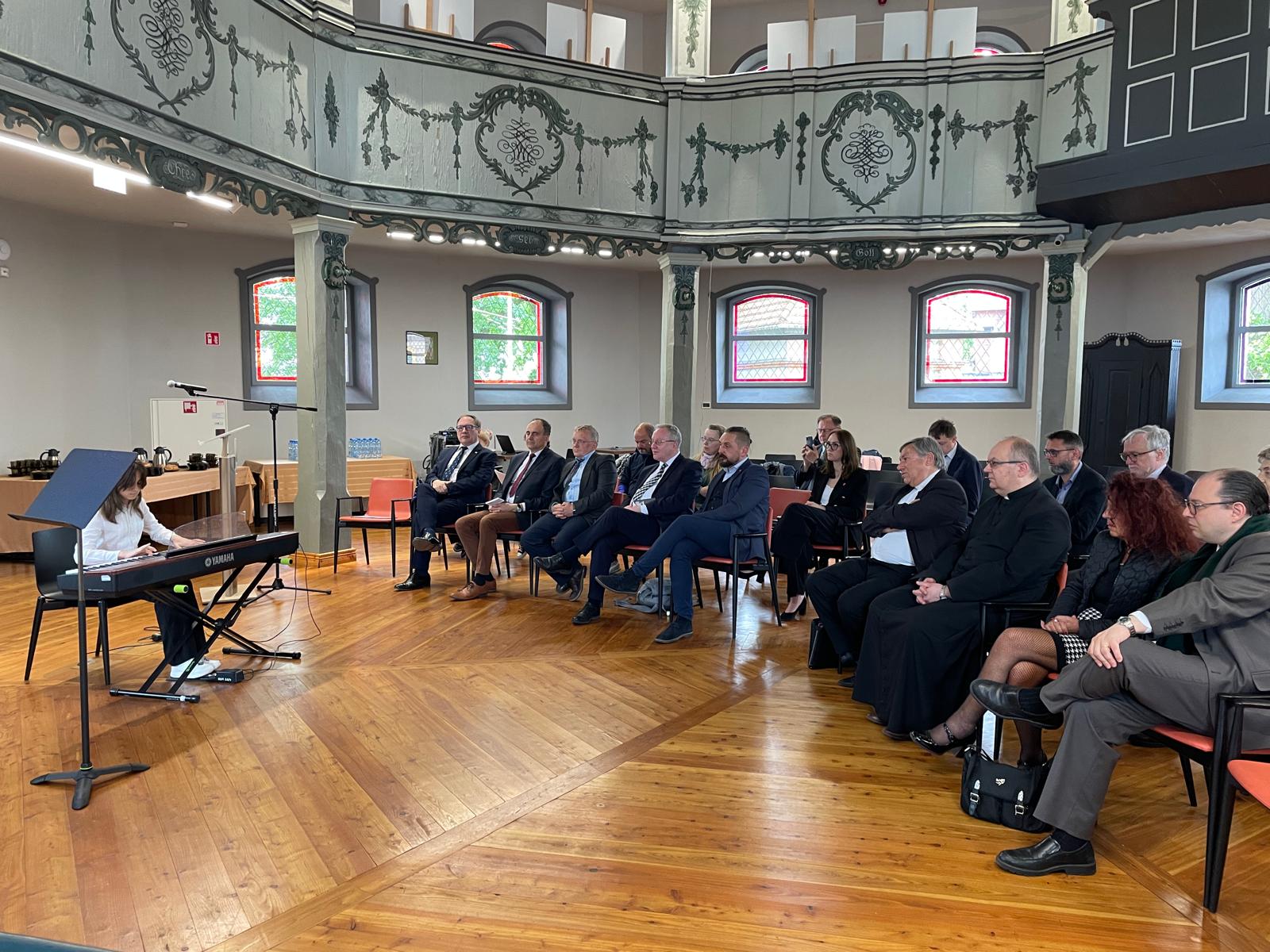
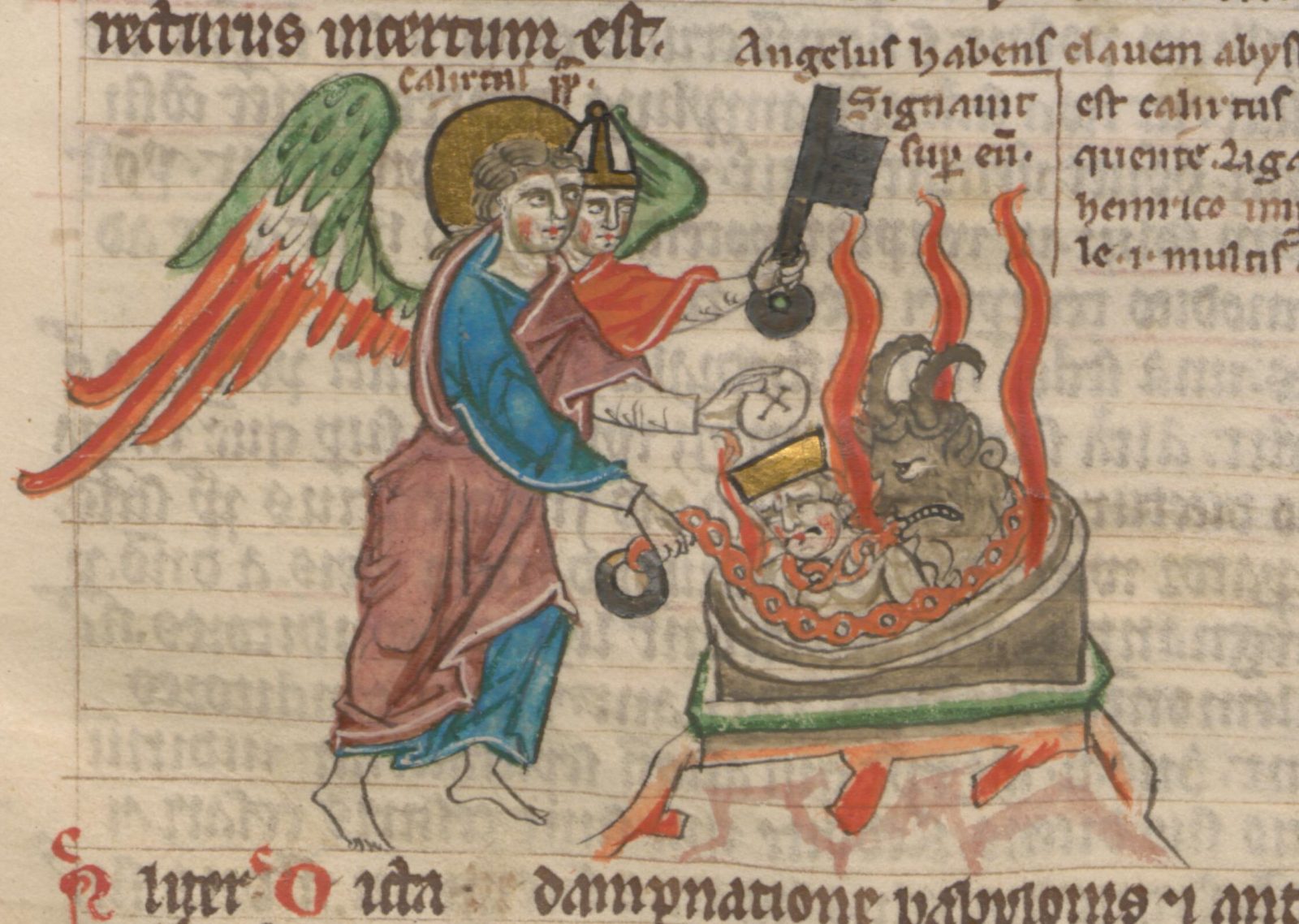
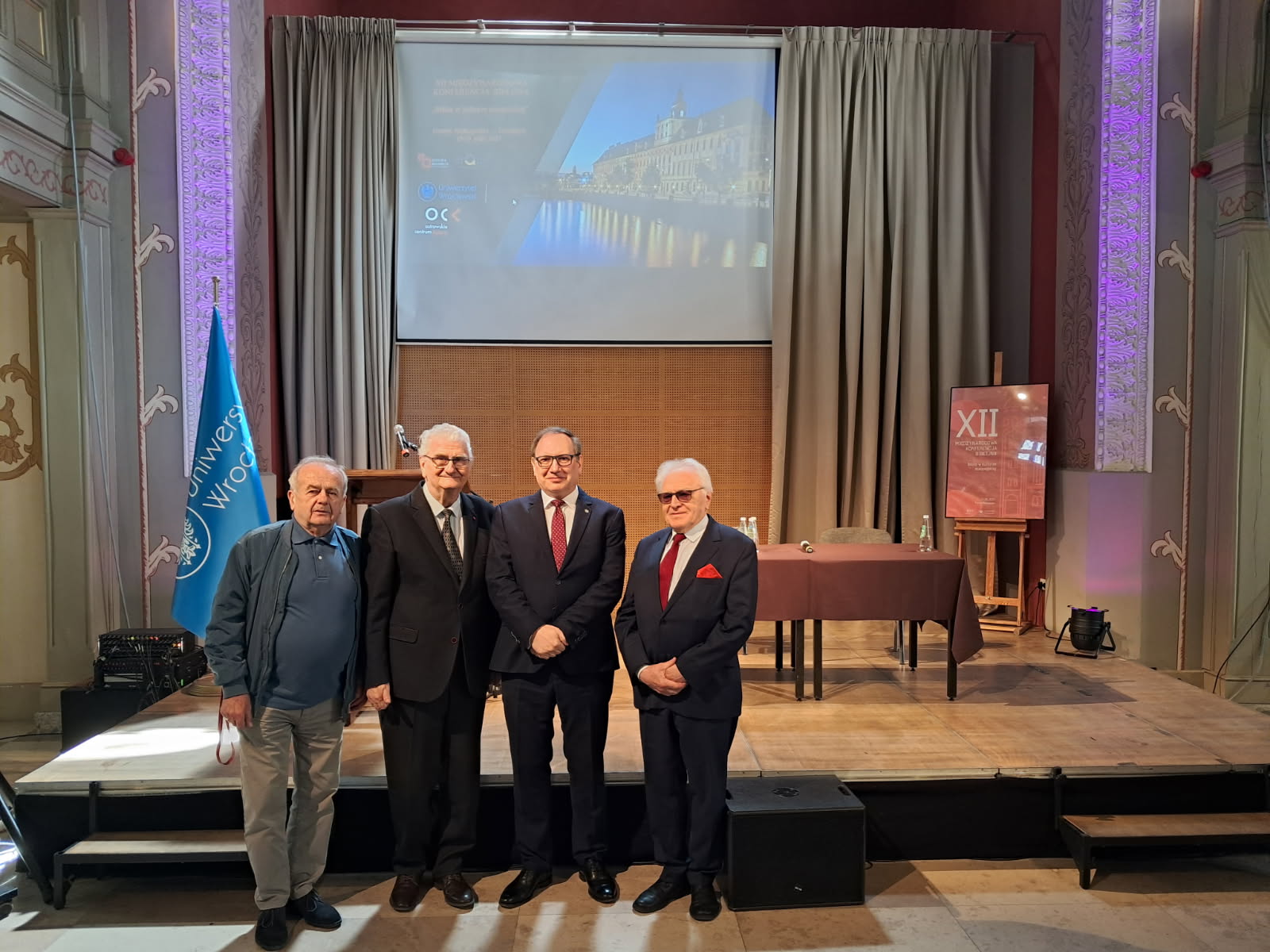
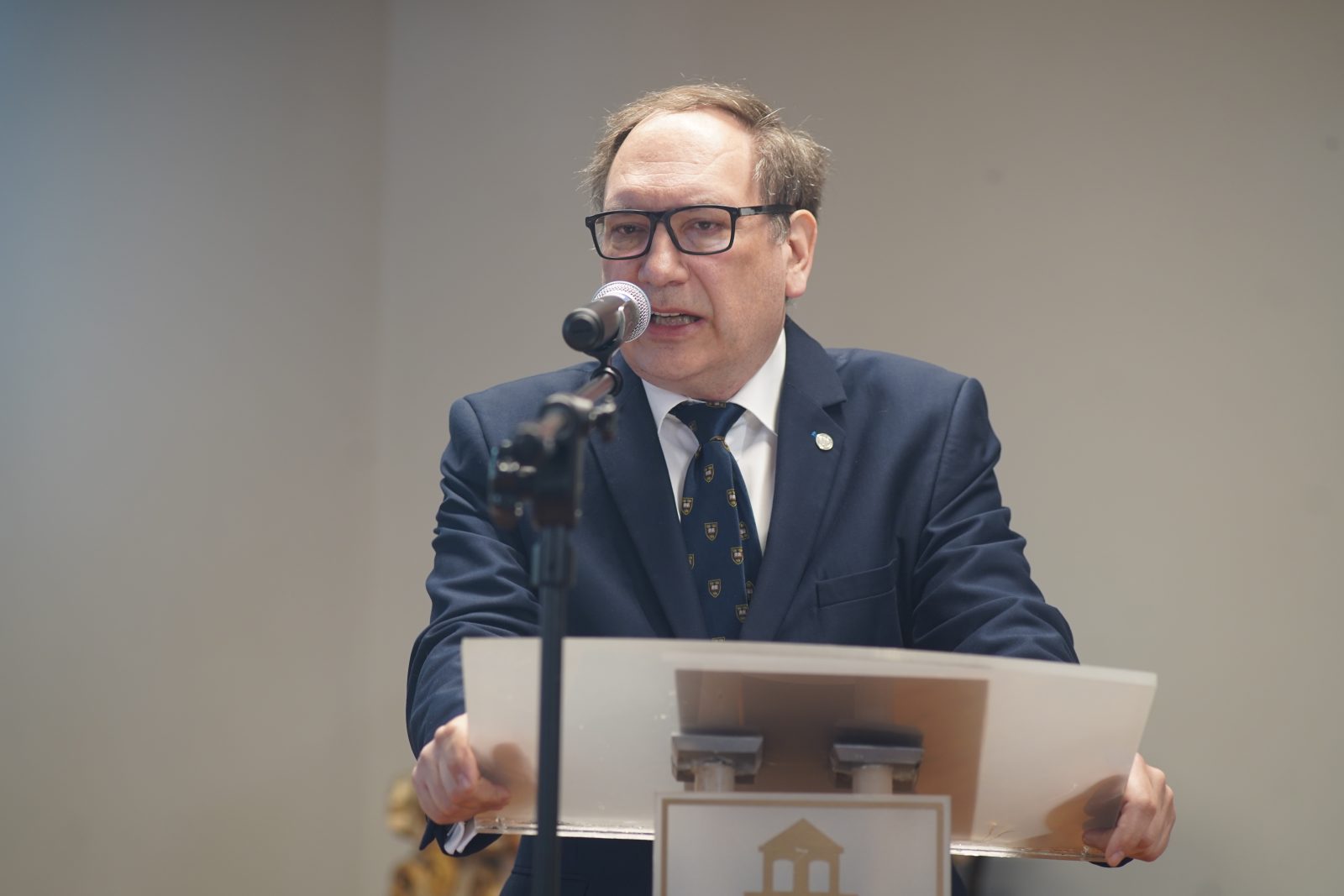

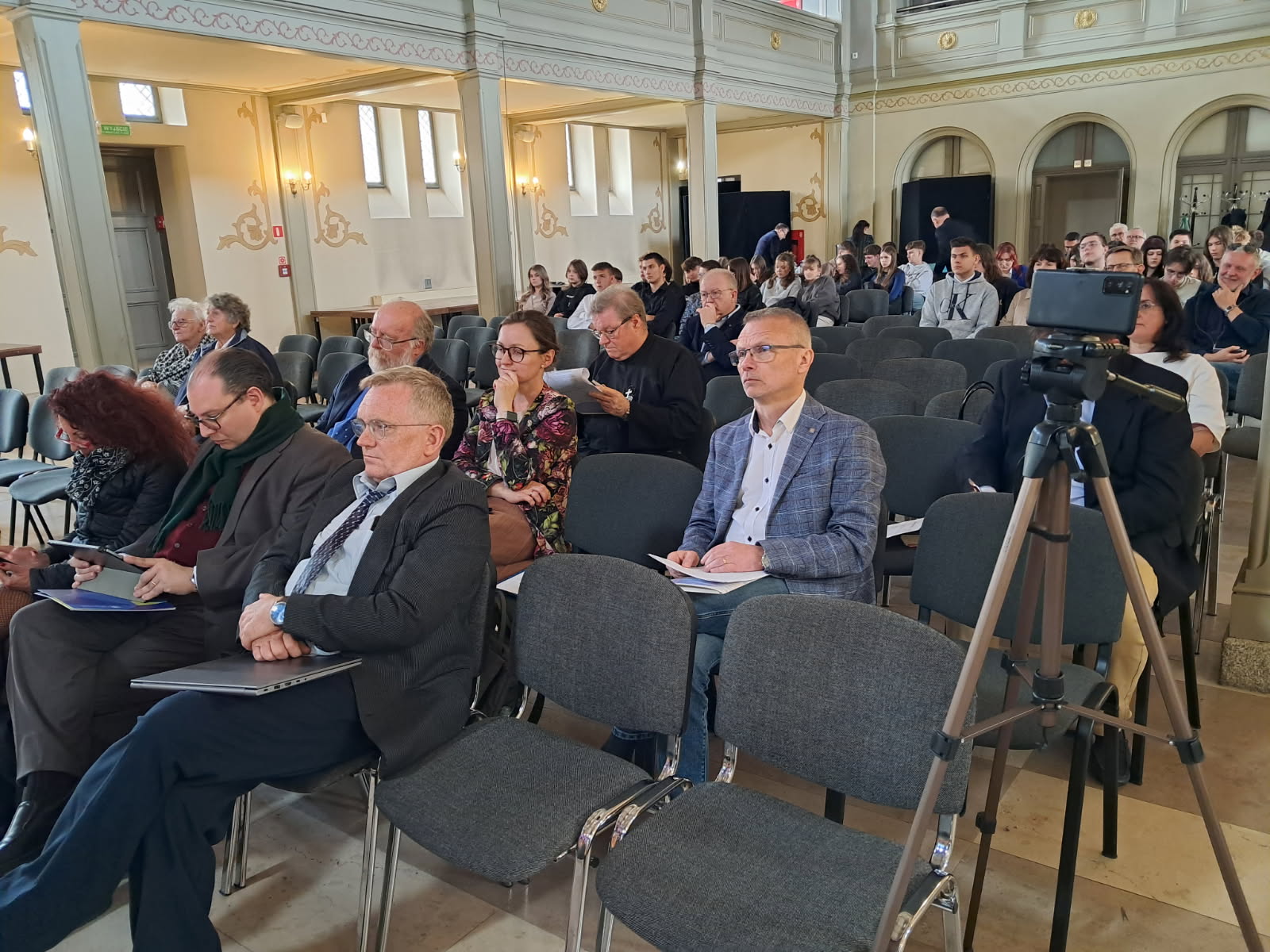
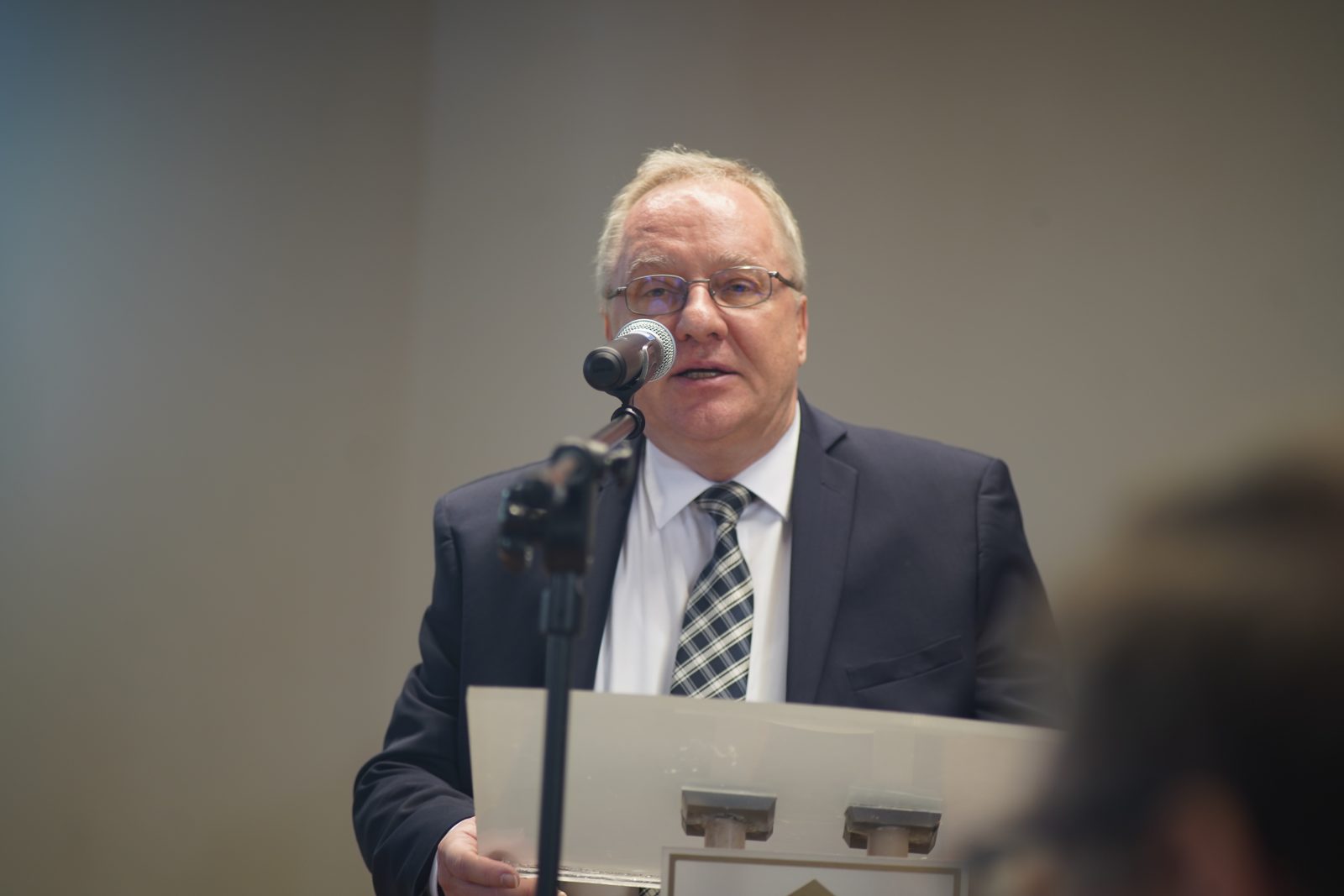
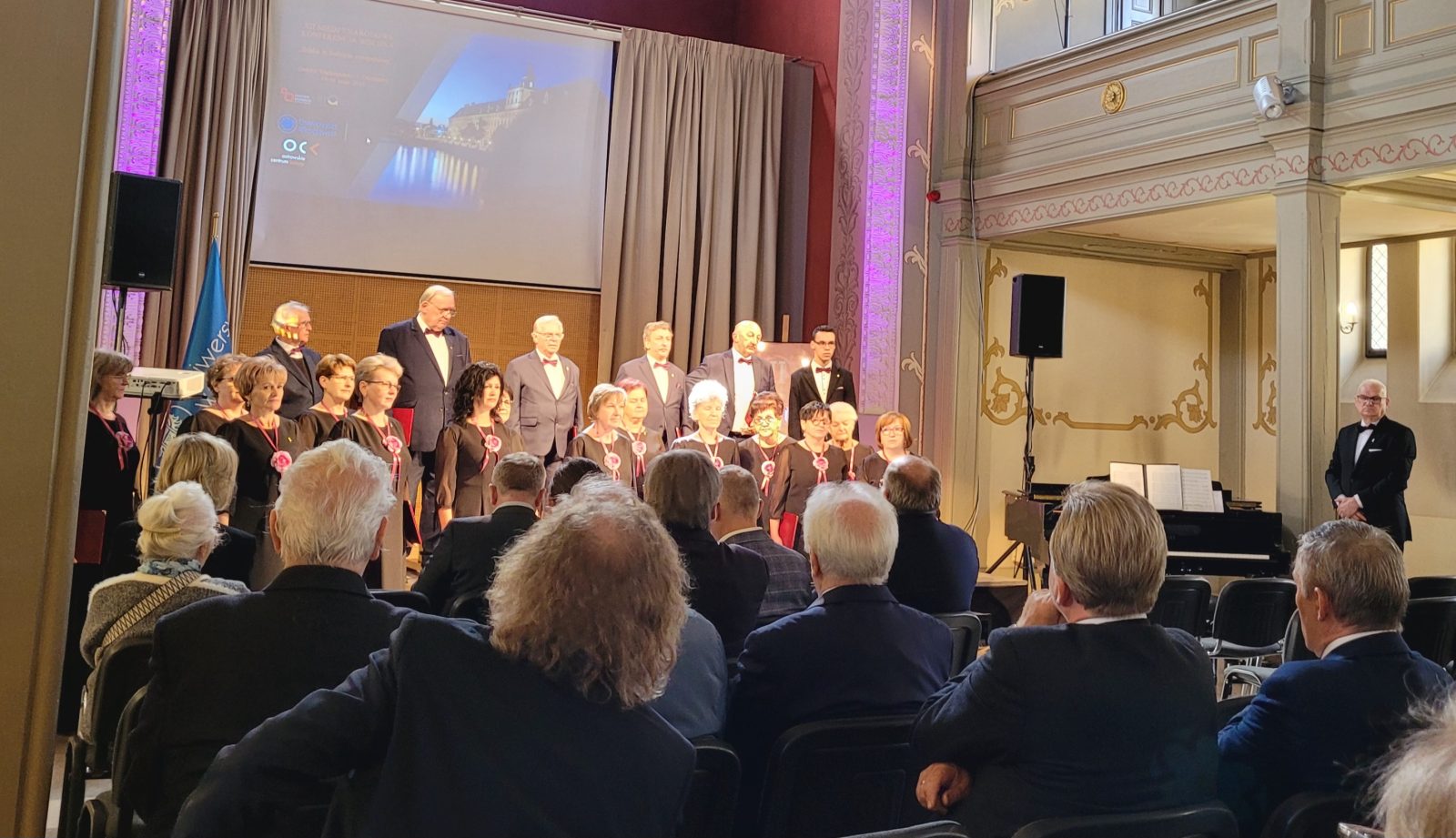
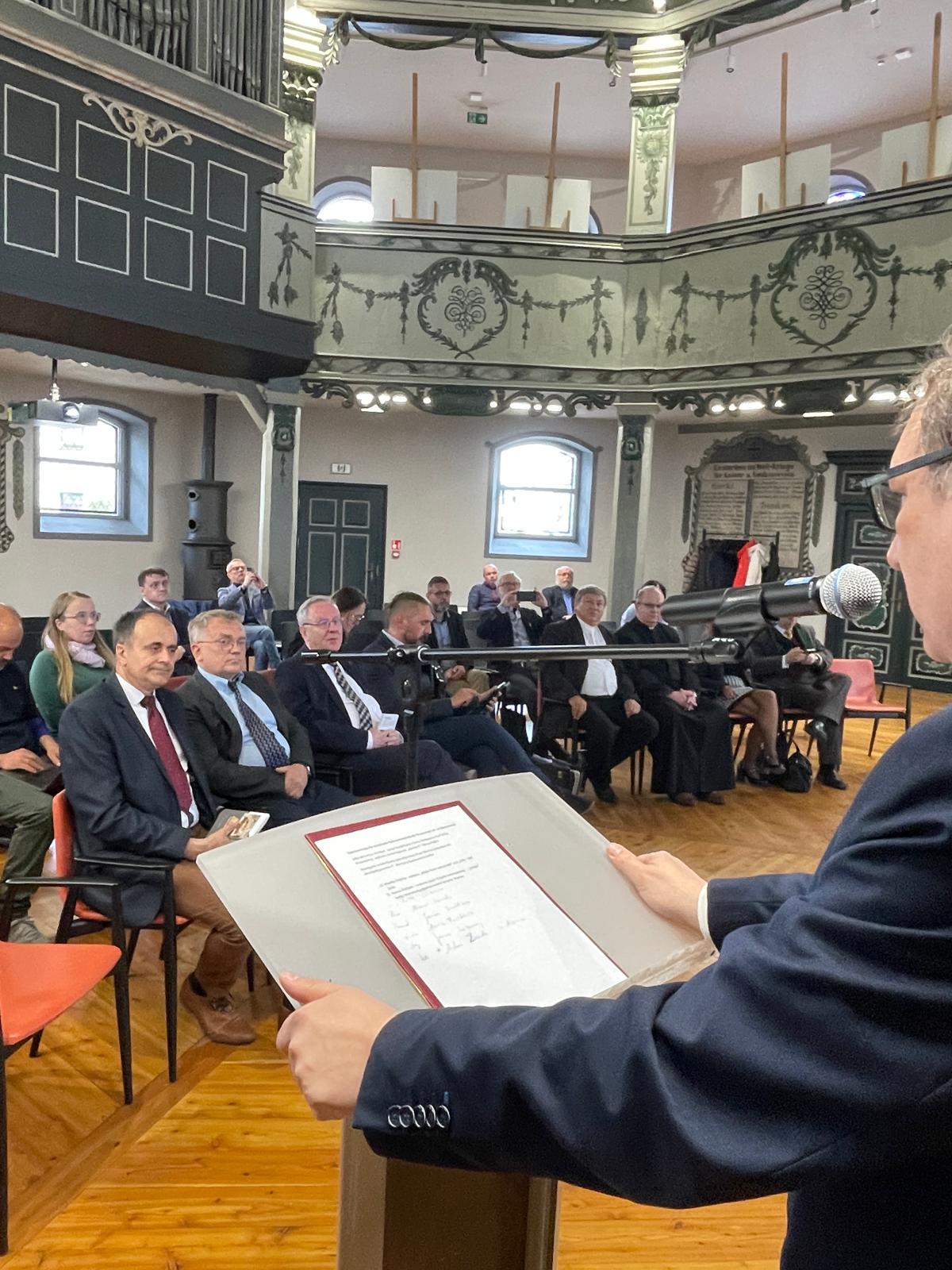
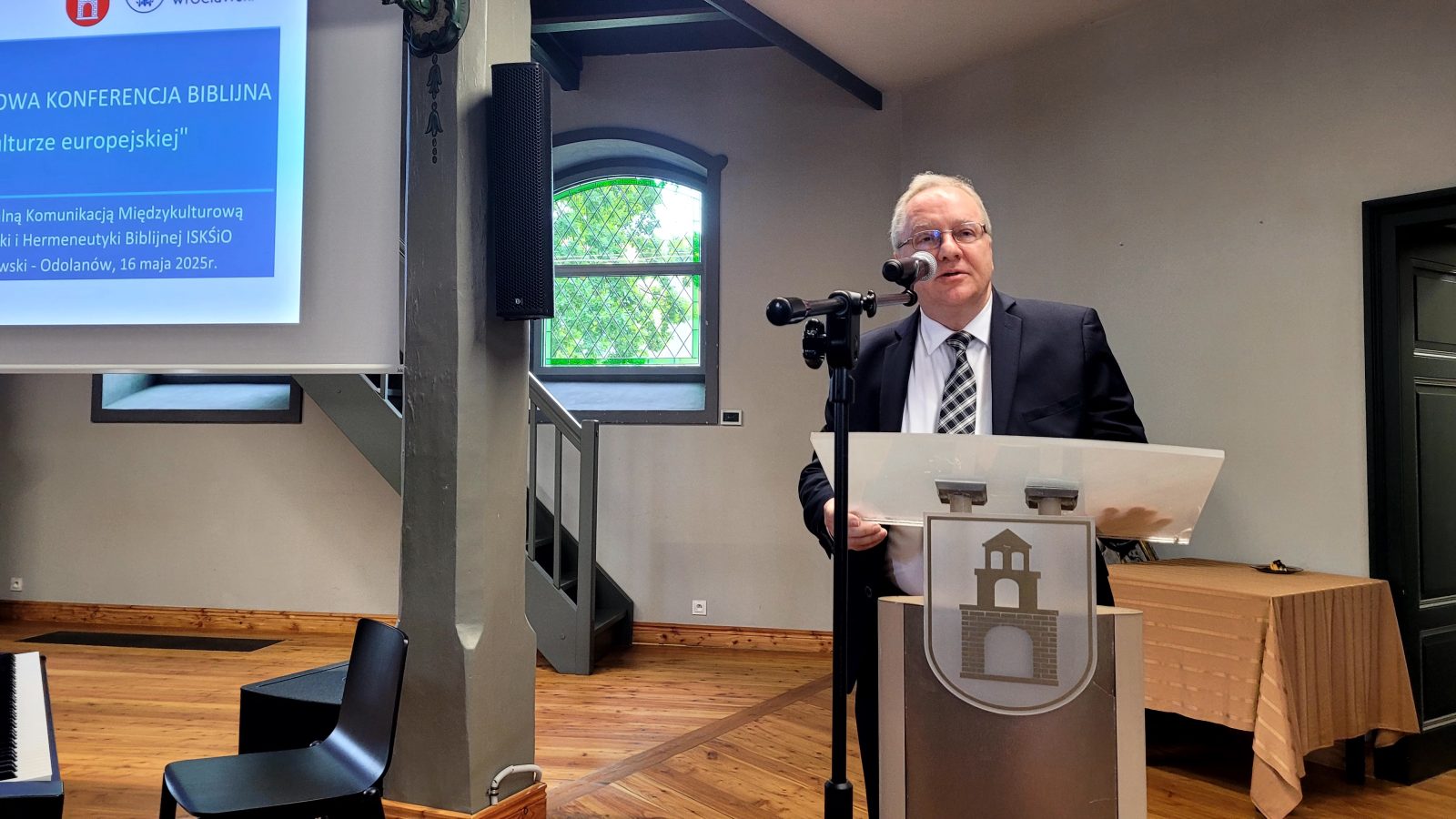
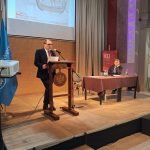
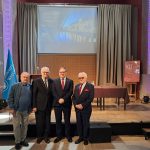
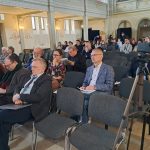
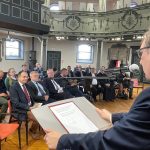
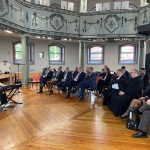
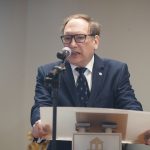
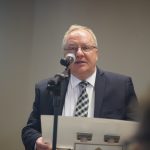
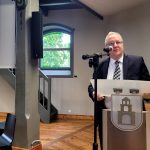
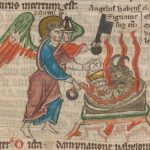
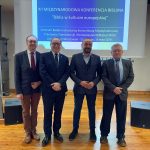
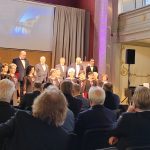
Date of publication: 20 May 2025
Added by: M.K.



